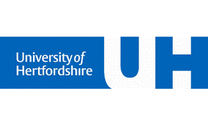 Professor Onora O'Neill
Professor Onora O'Neill 
Compensation – This method focuses on the victim and can be given even when the perpetrators are dead, so it is potentially useful. And, unlike retribution it can be done vicariously – but it does require that cause is properly established. One simple example of compensation is insurance pay-out, reparation after sub-standard treatment by regulated industry such as medical services. The problem is what happens when the cause of an injustice is multifarious and hard to determine? Or the result of unintended consequences? This is especially difficult in putting right ancient wrongs.
Restitution – This is a form of justice that restores the state of affairs that existed before; one example she gave was of looted art taken by the Nazis being given back after WW2. However in many cases this is not possible. Restitution may be vicarious for ancient wrongs but only if it is symbolically adequate. For example it may be done by the heirs of wrongdoers who are symbolic of the wrongdoers. Prof. O’Neill suggested that it can be “a deep and important response”. One example she cited is in New Zealand or Canada – those given restitution may those who are of mixed descent now. For it to be symbolic there must be a common view of who represents the past victims.
Prof. O’Neill then outlined various types of what she termed “amending action” that leads to Rectificatory justice – this can be as simple as an apology and forgiveness, or other more symbolic of practical actions to restore relationships. It does not need to be monetary compensation or for boundaries to change hands but can can be actions that restore relationships between nations or within a state. She suggested that an apology both in personal life and in politics can be very effective – as long as the person apologising is the right person to be apologising.
The most effective Rectificatory Justice cases mix up these different methods of compensation and amending action – e.g. in South Africa at the Truth and Reconciliation Commission. But even this case was fraught with problems. These two can’t be spliced easily – She gave the example of the loss of sacred spaces; the sacred is beyond price and so offering money just adds insult to injury. They want the actual place or artefact back.
Prof. O’Neill did not try to suggest what should be done in any particular case and indeed in the questions afterwards she avoided getting embroiled in political cases such as Iraq. But all in all it was a very illuminating and thought provoking talk.
Questions that I had following the talk:
Another reason why governments seek justice is to deter others from doing the committing the same. Does Rectificatory Justice deter people or states from committing offences in the same way?
Who is the best judge that we have for Rectificatory Justice?
Does a symbolic apology count for anything in reality?
Does the apology made as part of amending action have to be heartfelt to be make it truly effective?

 RSS Feed
RSS Feed
